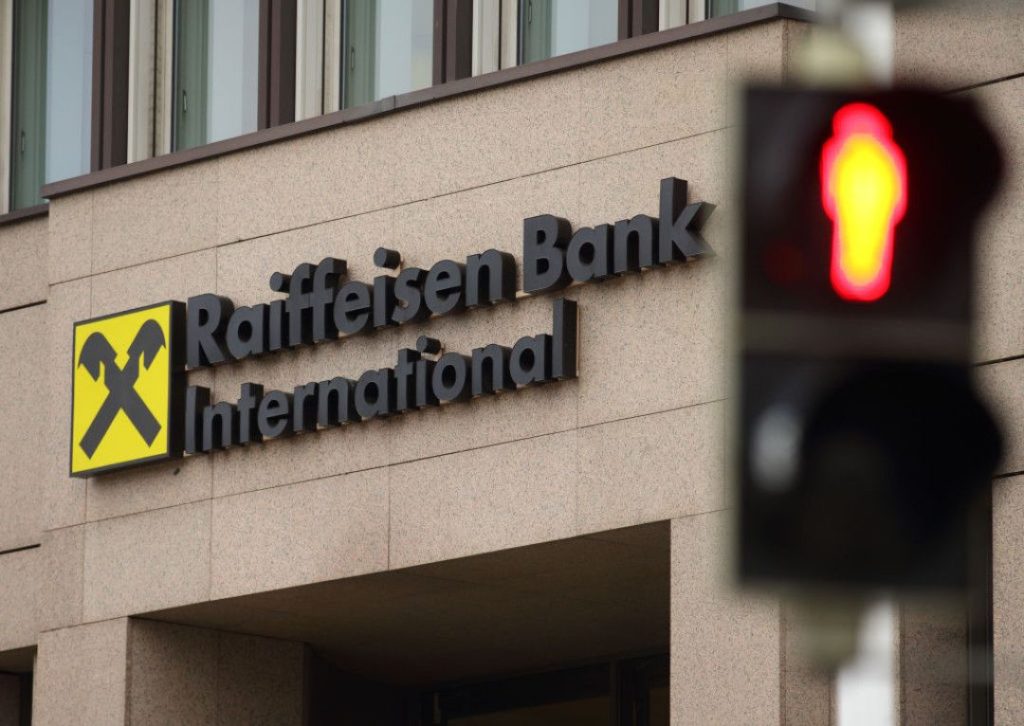The European Parliament has urged Austrian leaders to compel Raiffeisen Bank International (RBI) to cease its activities in Russia in compliance with EU sanctions. The largest remaining Western bank in Russia, Raiffeisen has been under pressure to scale down its operations in the country since the start of the conflict. Despite statements from Raiffeisen about intentions to reduce and sell their activities in Russia, the bank has continued to expand its operations. The European Parliament criticized Raiffeisen for maintaining and increasing its staff of nearly 10,000 employees in Russia, stating that these activities contribute to Russia’s economy and provide financial resources for military aggression against Ukraine. Ukraine has refused to remove Raiffeisen from its list of international sponsors of war due to its continued operations in Russia.
On April 18, Raiffeisen announced that it expects European regulators to request an acceleration of the bank’s withdrawal from Russia and that it would comply with these requests. The European Central Bank is expected to ask Raiffeisen to significantly decrease loans to customers in Russia by 2026. Raiffeisen stated that it would abide by this request and eventually sell its Russian subsidiary. However, the European Parliament deemed these actions as insufficient and called for further measures to be taken. The European Parliament’s letter to Austrian leaders emphasized the need for Raiffeisen to align with EU sanctions and cease its activities in Russia to prevent further support for Russia’s economy and military aggression against Ukraine.
In response to the ongoing conflict, the EU is preparing a 14th sanctions package against Russia to be adopted in the spring. Commissioner Valdis Dombrovskis announced the preparation of this new package at the “Standing with Ukraine: European Parliament’s legacy for the sanctions regime” conference in Brussels. The EU aims to impose further sanctions on Russia in response to the escalating conflict and Russian military aggression. The EU’s continued efforts to implement sanctions against Russia demonstrate its commitment to supporting Ukraine and holding Russia accountable for its actions in the region.
Raiffeisen Bank International’s operations in Russia have come under scrutiny amid the conflict, with calls for the bank to align with EU sanctions and cease its activities in the country. Despite statements from the bank about reducing operations in Russia, Raiffeisen has faced criticism for its continued expansion in the region. The European Parliament’s letter to Austrian leaders highlights the need for Raiffeisen to comply with EU sanctions and cease activities that contribute to Russia’s economy and military aggression against Ukraine. As the conflict continues to escalate, the EU is preparing additional sanctions against Russia to address the ongoing crisis and support Ukraine in its struggle for sovereignty and independence.
The ongoing conflict in Ukraine has led to increased pressure on Western banks, such as Raiffeisen Bank International, to withdraw from Russia and align with EU sanctions. The European Parliament’s call for Raiffeisen to cease its activities in Russia reflects the broader international efforts to hold Russia accountable for its actions in the region. As the EU prepares to implement a new sanctions package against Russia, the focus on financial institutions like Raiffeisen underscores the importance of halting support for Russia’s economy and military activities. By taking action against banks that continue to operate in Russia, the EU aims to weaken Russia’s ability to sustain its aggression in Ukraine and promote a peaceful resolution to the conflict.
Overall, the European Parliament’s letter to Austrian leaders and the EU’s preparation for further sanctions against Russia highlight the ongoing efforts to address the conflict in Ukraine and support the country in its struggle for sovereignty. Raiffeisen Bank International’s operations in Russia have come under scrutiny, with calls for the bank to comply with EU sanctions and cease activities that support Russia’s economy and military aggression. As the conflict continues to escalate, the EU’s commitment to implementing sanctions against Russia demonstrates its solidarity with Ukraine and determination to hold Russia accountable for its actions.


